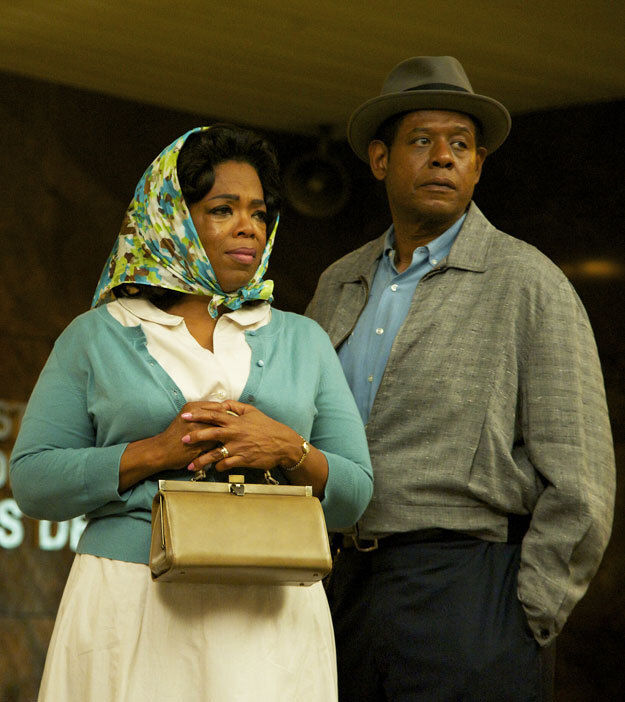You will be well served by seeing "The Butler"
- Adam Carr

- May 11, 2023
- 3 min read
It is a herculean task to tell a love story from first flirt until death does them part. It is also difficult showing the personal cost of those in the middle of the civil rights movement while not losing sight of the love story. Director Lee Daniels ("Precious: Based on the Novel "Push" by Sapphire," "The Paperboy") has done both in his film “Lee Daniels’ The Butler.” This movie is no history lesson. It is a story of a family holding itself together while being in the middle of a historic movement. It is a movie that is well crafted and well told.

The movie follows the life of Cecil Gaines (Forest Whitaker) from a boy working in the cotton fields with his parents to his role as a butler in the White House. He is taken under the care of the family matriarch (Vennessa Redgrave) and made to work in the house when his parents attract the dangerous attention of out of control son of the owners. The portrayal of violence in “The Butler” is unrestrained. It raises the stakes in every scene as it lurks in the background.
The difficult task of making a movie like “The Butler” is knowing the right mix of historical references mixed with family dramatics. If you add too much of one it becomes an educational piece without any emotional value; if you add too much of the other you lose the context from which you are telling the story. Mr. Daniels has done an uncanny job of interconnecting the two. “The Butler’s” brilliance is in its editing. It is exemplified in a sequence where freedom riders prepare for the violence they will inevitably face when they sit in an all-white section of a restaurant which is intercut with Cecil and his fellow employees preparing for a state dinner at the White House. The scene continues with the sit in and the dinner. Mr. Daniels has protected his movie from any sentimentality. The scenes are raw and moving.

The Cecil character, as depicted by Mr. Whitaker, is an engaging character to watch. He has a sense of right and wrong and is dedicated to hard work and family. Mr. Whitaker’s talent is the strong command he has over a wide range of emotions. His portrayal of Cecil is placid. It works well considering the best in Cecil’s profession are invisible in the room they are serving. He is also an observer watching the struggles of his race while being employed in a white environment of which he is unwilling to make waves. The only time we see the reserve Cecil’s fuse lit is when the family dynamic, of which he sits on top, is threaten by his son, Louis (David Oyelowo), who wants to be a part of his race’s liberation.

Mr. Daniels has complimented Mr. Whitaker with a strong cast none better than Mr. Oyelowo who has the unenviable task of depicting a character who struggles with wanting to be a part of a crusade while defying his father. Mr. Oyelowo does a nice job communicating the storms that percolate inside of Louis. He bounces from one strategy for black empowerment- submission and violence- to the other but also shows his uncertainty along the way as his maturity develops. Oprah Winfrey reminds us of why she was nominated for a supporting actress Oscar twenty-eight years ago for “The Color Purple.” She is solid as a fierce matriarch who holds her family together with love at the slightest sign of any fissure but is easily submissive to her demons. It is a relief to see Cuba Gooding Jr. in a role that isn’t a throw away and Lenny Kravitz is a pleasant surprise as the most worldly of the trio.
There are a lot of cameos of famous names who play the presidents that Cecil serves. James Marsden gives the best impersonation of a president as John F. Kennedy. I’m not sure if John Cusack is doing an impersonation of Richard Nixon or if it’s a spoof but it is fascinating to watch.
But “The Butler's” achievements should be credited to Lee Daniels. His story-telling of both a movement in the United States and the personal stories of two generations coming to terms with that movement are engrossing.





Comments